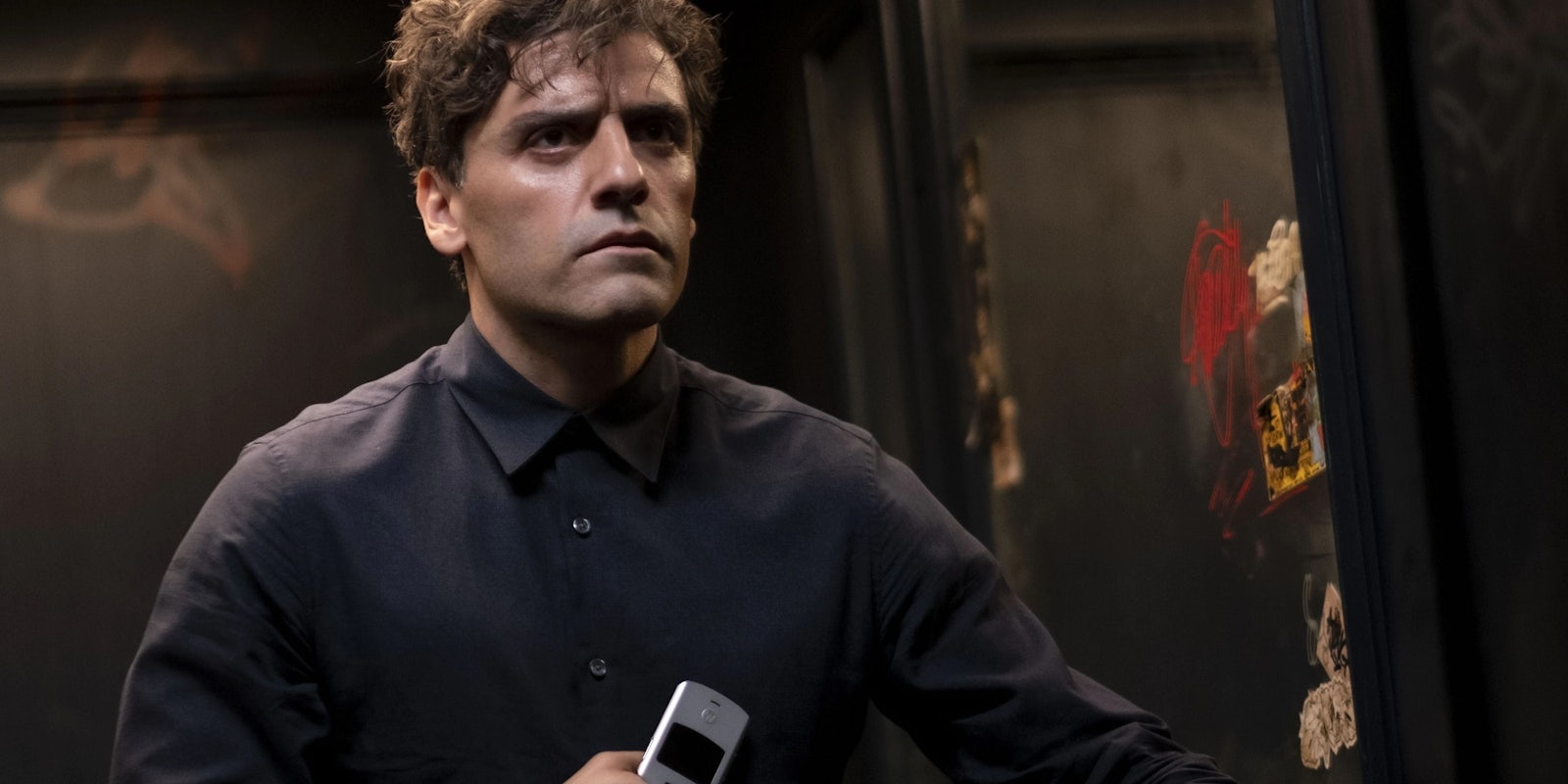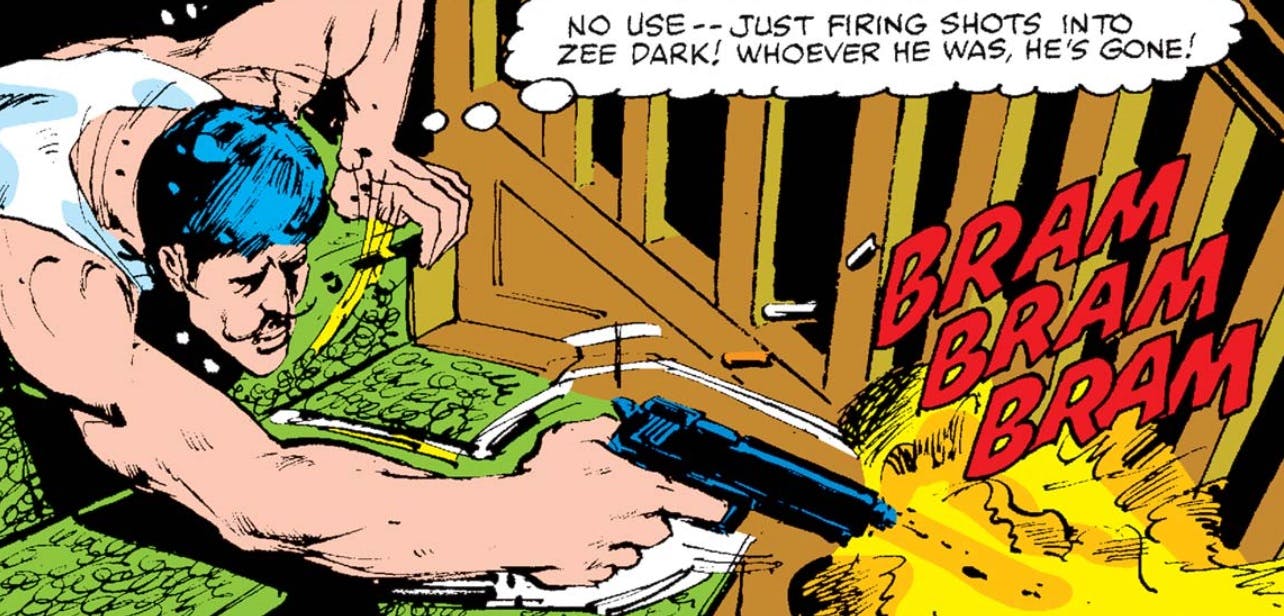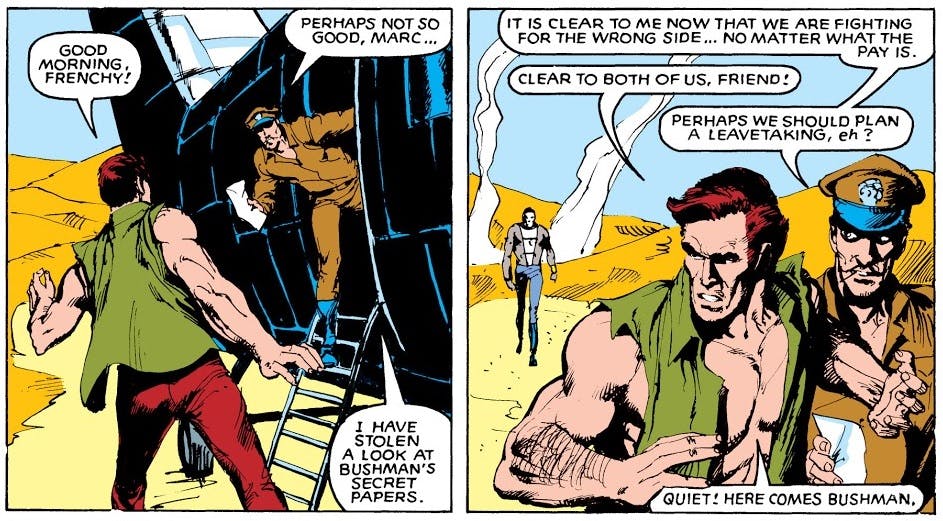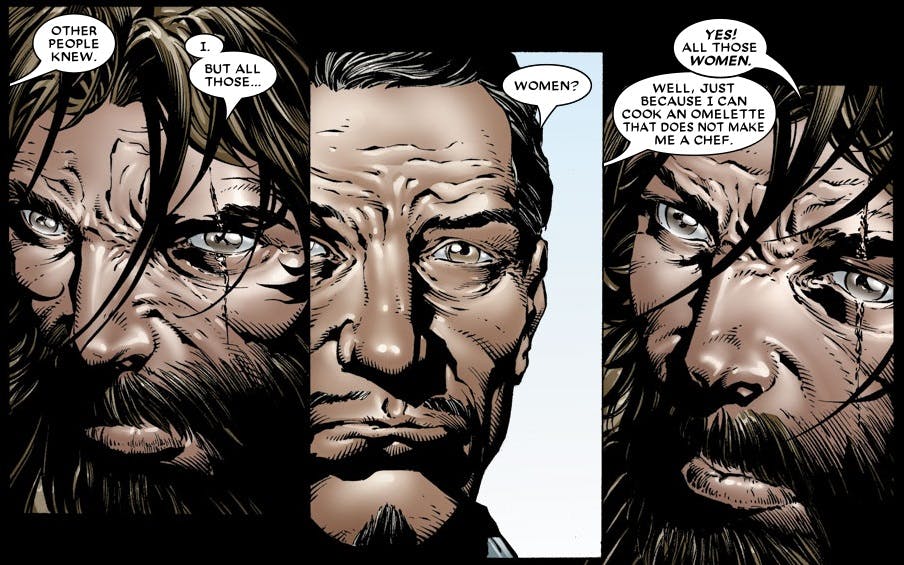This post includes spoilers for Moon Knight episode 1.
Disney+’s Moon Knight gets off to a strong start, departing from the Batman-style grittiness of the comics. Instead of focusing on Moon Knight’s main alter-ego Marc Spector (a mercenary/vigilante), Oscar Isaac is introduced as Steven Grant, a dweeby English retail worker with no survival skills.
Steven doesn’t know that he’s one of several personalities inhabiting the same body. This sets the scene for a frantic brand of comedy, as Steven wakes up in the middle of perilous action sequences with no memory of how he got there. By the end of episode 1, Steven has confronted Marc Spector face-to-face in the mirror and discovered Marc’s burner phone. It lists dozens of missed calls from a woman named Layla, and one from someone named Duchamp. An intriguing detail because Jean-Paul “Frenchie” Duchamp, Marc’s longtime sidekick, isn’t on Moon Knight’s cast list.
Compared to the show’s more drastic departures from Marvel canon, Duchamp’s absence isn’t a big deal. However, it does raise questions in the context of Disney’s track record with queer representation. Duchamp is gay in the comics, and this adaptation reduces him to a tiny Easter Egg reference in Marc’s cellphone. I don’t think it counts as a spoiler to confirm that in the next three episodes, there’s no further sign of him.
Layla (May Calamawy), the show’s female lead, is technically a brand new character. But there are already hints that she’s more like a reboot of Marc Spector’s comic book love-interest Marlene Alraune. By replacing a white American archaeologist with an Egyptian character, the MCU can ameliorate some problematic colonialist themes from the comics. And while Layla and Steven are strangers, she clearly has a history with Marc, echoing Marlene’s role. The main difference is, Marc and Marlene were originally portrayed as two-thirds of a trio with Frenchie Duchamp.
Jean-Paul ‘Frenchie’ Duchamp in the Moon Knight comics
Frenchie was a key player in early Moon Knight comics, appearing briefly in the character’s debut (Werewolf by Night #32, 1975), and reintroduced as Marc Spector’s sidekick during Moon Knight’s origin story (1980).
Duchamp is a rather absurd French stereotype at first, sporting an ostentatious mustache and speaking in an exaggerated accent. Like Moon Knight’s two lead characters, he plays into some familiar colonialist tropes about Western “adventurers” in Egypt. Marlene is an archaeologist excavating ancient ruins in an exoticized foreign land. Marc is a former CIA agent, a “veteran of three African wars and five South American revolutions.” And Frenchie (a mercenary and pilot) is a former soldier who still likes to wear his old uniform, tying into France’s colonization of West Africa.
Moon Knight #1 speed-runs Marc Spector’s origin story. While fighting terrorists in Sudan, he meets Marlene, gains mystical superpowers from an ancient tomb, and returns to America to become a costumed superhero. Frenchie, his pilot, is like a cross between Iron Man’s Jarvis and Rhodey—a combination of friend and support staff. It’s a standard sidekick role.
This being 1980, Frenchie is portrayed as almost comically heterosexual. But as the Moon Knight comics evolved, so did he. During a 2006 storyline where he and Marc face life-altering injuries from their adventures, Frenchie comes out as gay, introducing Marc to his boyfriend Rob. (By this point he’s opened a restaurant, pivoting to different stereotypes.)
Marc is shocked, asking what happened with all of Frenchie’s girlfriends. “Most of them were beards,” replies Frenchie. “The dashing French pilot and bodyguard of millionaire Steven Grant? An ornament like Rob was not what was expected to be found dangling from my arm.” A page later, Frenchie reveals in matter-of-fact terms that he used to be in love with Marc, and that Marlene knew all along.
Frenchie Duchamp may not be a Marvel A-lister, but his erasure from the MCU’s Moon Knight plays into a widely-criticized pattern from the franchise. The MCU took a frustratingly long time to include any queer characters, an issue that attracted extra scrutiny this year due to Disney’s financial support of homophobic politicians and insider reports of Disney censoring queer content at Pixar.
On the one hand, Marc Spector’s sidekick isn’t a necessary figure if Marc isn’t the protagonist. On the other hand, well… that’s how Moon Knight‘s writers chose to frame the story. There are plenty of other ways the show could’ve introduced and revitalized Frenchie’s role, in the same way that characters like Arthur Harrow (Ethan Hawke) were adapted from page to screen. Frenchie was an easy, natural way to include a queer character among the main cast, but instead, Moon Knight‘s creators reduced him to a footnote.





